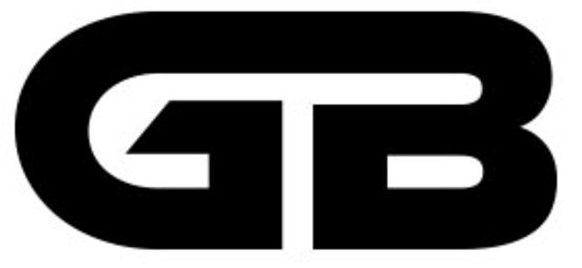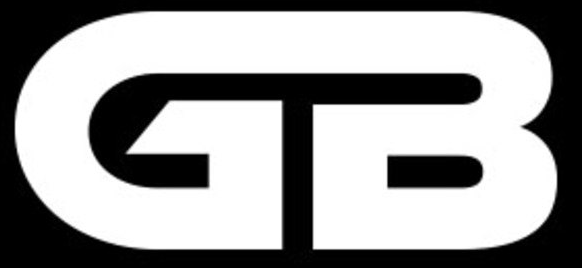Wikipedia is a free, online encyclopedia that anyone can edit. Launched in 2001 by Jimmy Wales and Larry Sanger, it has grown into one of the largest and most popular reference sites on the internet, offering millions of articles in multiple languages. It embodies the concept of open collaboration, allowing users from around the world to contribute and edit content.
Brief History of Wikipedia
Wikipedia started as a complementary project to the expert-reviewed Nupedia. However, its open editing model quickly surpassed Nupedia’s limited scope. By harnessing the collective knowledge of volunteers globally, Wikipedia rapidly expanded, democratizing access to information and revolutionizing the way we share knowledge.
The Mission and Vision of Wikipedia
Mission Statement
Wikipedia’s mission is to empower and engage people around the world to collect and develop educational content under a free license or in the public domain, and to disseminate it effectively and globally.
Vision Statement
Wikipedia envisions a world in which every single person can freely share in the sum of all knowledge. This vision reflects the project’s commitment to openness, collaboration, and accessibility.
How Wikipedia Works
Open Editing Model
At the heart of Wikipedia is its open editing model. This means that anyone with internet access can edit almost any article, fostering a culture of collective contribution and peer review.
Role of Editors and Administrators
Editors contribute by creating and refining articles. Administrators, selected through community consensus, have additional tools to manage and protect the site from vandalism and maintain order.
The Five Pillars of Wikipedia
- Wikipedia is an encyclopedia.
- Wikipedia has a neutral point of view.
- Wikipedia is free content that anyone can use, edit, and distribute.
- Editors should treat each other with respect and civility.
- Wikipedia has no firm rules besides these five general principles.
Wikipedia’s Content Policies
Verifiability
All content must be verifiable and attributed to reliable sources. This ensures that the information is credible and can be traced back to its origin.
Neutral Point of View (NPOV)
Wikipedia articles must be written from a neutral perspective, presenting all significant views fairly and without bias.
No Original Research
Wikipedia is not a platform for original thought or research. All material must be attributable to a published, reliable source.
The Wikipedia Community
Who Contributes to Wikipedia?
Contributors range from casual readers who correct typos to dedicated editors who write detailed articles. The community is diverse, comprising people from various backgrounds and expertise.
Community Guidelines
Wikipedia has a robust set of community guidelines to maintain a positive and productive environment. These include policies on civility, assuming good faith, and resolving disputes.
Collaboration and Dispute Resolution
Collaboration is key to Wikipedia’s success. When disputes arise, they are resolved through discussion and consensus, often mediated by experienced editors or administrators.
Wikipedia’s Technological Framework
MediaWiki Software
Wikipedia runs on MediaWiki, an open-source software platform designed for collaborative editing. This software is crucial for managing the vast amount of content and user interactions.
Server Infrastructure
Wikipedia’s infrastructure includes numerous servers distributed globally to handle traffic and ensure uptime. This robust setup supports millions of visitors daily.
Wiki Projects and Extensions
Various extensions and WikiProjects enhance Wikipedia’s functionality, helping editors organize and improve content in specific areas.
Quality Control on Wikipedia
Fact-Checking Mechanisms
Editors and bots regularly check articles for accuracy and consistency. Fact-checking is an ongoing process, crucial for maintaining Wikipedia’s reliability.
Use of Reliable Sources
Citing reliable sources is mandatory. This practice helps maintain the integrity of information and allows readers to verify facts independently.
Editorial Reviews and Talk Pages
Talk pages accompany every article, providing a space for editors to discuss changes and improvements. Editorial reviews ensure articles meet Wikipedia’s standards.
Challenges and Criticisms
Issues with Vandalism
Despite its open nature, Wikipedia faces challenges like vandalism, where users deliberately add false information. Vigilant editors and automated tools help mitigate this issue.
Bias and Reliability Concerns
Critics argue that Wikipedia can reflect the biases of its contributors. Efforts are ongoing to address these concerns by promoting diversity among editors and adhering to NPOV.
Systemic Bias and Representation
Systemic bias in Wikipedia content often mirrors societal biases. Addressing this requires conscious efforts to include underrepresented perspectives and topics.
Wikipedia’s Impact on Knowledge Sharing
Educational Use
Wikipedia is widely used in educational settings, from primary schools to universities. It serves as a starting point for research and a tool for learning.
Contribution to Open Access
By providing free access to knowledge, Wikipedia contributes significantly to the open access movement, breaking down barriers to information.
Influence on Other Knowledge Platforms
Wikipedia’s model has inspired numerous other platforms and projects, promoting the ideals of open collaboration and free knowledge.
Case Studies
Notable Edits and Controversies
Wikipedia has seen its share of notable edits and controversies. These instances highlight the dynamic and sometimes contentious nature of the platform.
Success Stories and Positive Changes
Success stories abound, such as Wikipedia’s role in documenting breaking news or preserving endangered languages. These examples showcase its positive impact.
The Future of Wikipedia
Technological Advancements
Future advancements in AI and machine learning could enhance Wikipedia’s editing and fact-checking processes, making it even more reliable.
Expanding Global Reach
Efforts to increase participation from underrepresented regions and languages are crucial for Wikipedia’s growth and inclusivity.
Community and Policy Evolutions
As the community evolves, so do Wikipedia’s policies, adapting to new challenges and ensuring the platform remains relevant and effective.
Wikipedia’s Relationship with Academia
Use in Academic Research
While often not cited as a primary source, Wikipedia is a valuable resource for initial research and finding references.
Critiques from Scholars
Some scholars criticize Wikipedia for its perceived lack of reliability. However, many acknowledge its value as a comprehensive and accessible information source.
Efforts to Improve Credibility
Initiatives like Wiki Education Foundation work to improve Wikipedia’s credibility by engaging academics and students in editing and content creation.
How to Contribute to Wikipedia
Creating and Editing Articles
Anyone can create and edit articles on Wikipedia. The process is straightforward, and numerous resources are available to help new editors.
Becoming an Administrator
Experienced editors can become administrators, taking on additional responsibilities to help manage the site and enforce policies.
Joining WikiProjects
WikiProjects are collaborative efforts where editors focus on specific topics or areas, improving and organizing content collectively.
Wikipedia in Different Languages
Major Language Editions
Wikipedia is available in numerous languages, with English, German, and French editions being among the largest.
Localization Efforts
Efforts to localize content ensure that Wikipedia remains relevant and accessible to non-English speakers, promoting global knowledge sharing.
Multilingual Contribution Challenges
Contributing to non-English editions can be challenging due to language barriers and varying cultural contexts, but these efforts are vital for inclusivity.
Conclusion
Wikipedia continues to evolve, shaping the future of knowledge sharing. Its commitment to openness and collaboration makes it a cornerstone of the information age. As we look to the future, Wikipedia’s role in democratizing knowledge remains as vital as ever.


